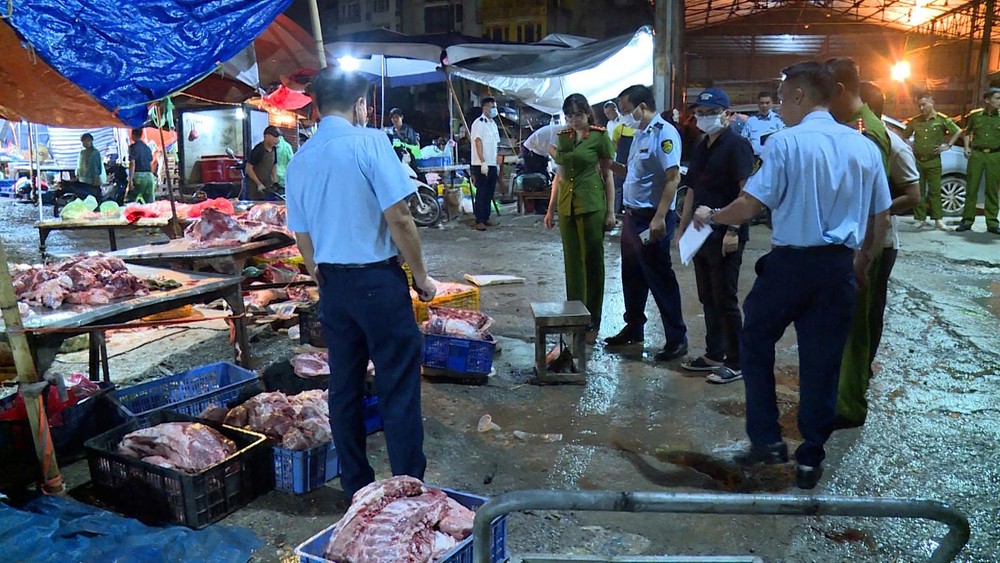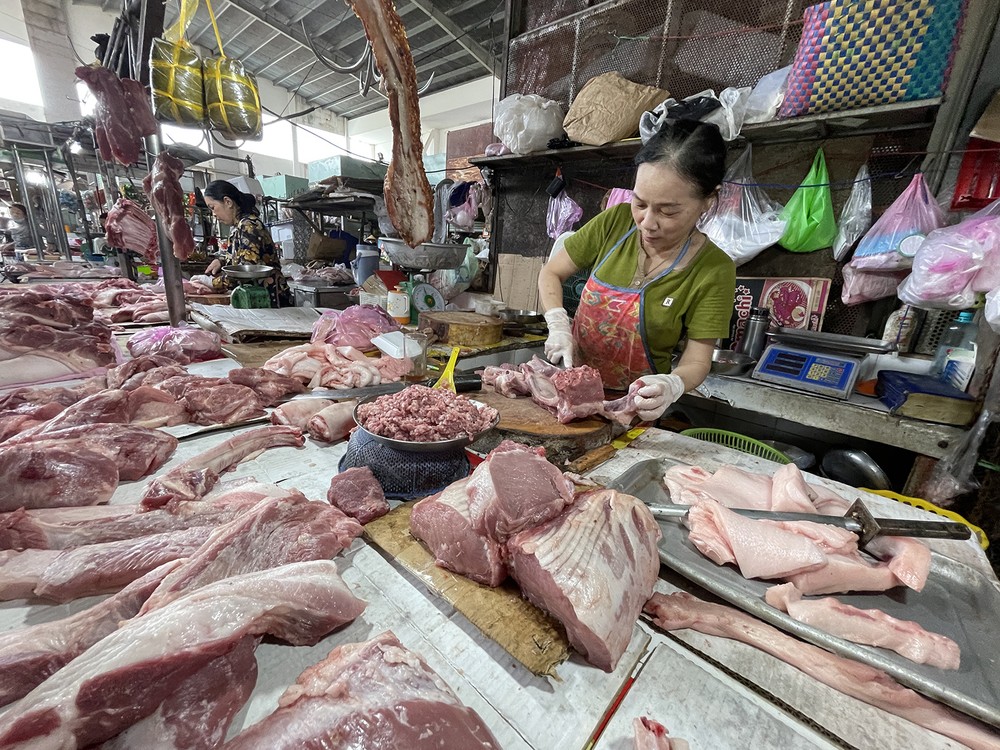
This comes as pork consumption has significantly declined due to consumer fears about the disease, leading monitor of the sourcing and entry of pork into the market.
At Tan Chanh Hiep Market in Ho Chi Minh City’s Trung My Tay Ward, pork vendors are grappling with a sharp drop in customer demand. ‘Just two weeks ago, I was selling nearly 150 kilograms of meat every morning’, one trader said. ‘Now I can barely move 90 kilos’. She gestured toward her stall, still packed with unsold cuts of pork moaning that even though prices have dropped, people also don’t want to buy.
This slump is being felt citywide. At major markets such as Hoa Hung and Ba Chieu, even peak hours see pork stalls largely deserted. The downturn isn’t limited to each consumer but restaurants are also scaling back. A restaurateur in Ban Co Ward shared that pork-based dishes like offal, floss, and pork rolls have been removed from the menu after a wave of customer rejection. ‘Sales of pork dishes are down by 40 to 60 percent since the outbreak’, he reported.
The decline extends beyond Ho Chi Minh City. In Dong Nai Province’s Bien Hoa Market, many vendors are leaving early with unsold stock. At Can Giuoc Market in Tay Ninh Province on July 30, over half the pork stalls were shuttered, and those that remained open had limited inventory. Local vendor Tran Hong Xiem said that she used to bring in 80 to 100 kilos daily but she now only take 40, and by noon, half of it is still sitting here.
At Da Nang’s Hoa Cuong Wholesale Market, the atmosphere is similarly bleak: nine out of 24 pork stalls were closed during recent inspections.
In response to growing public concern over African swine fever, Ho Chi Minh City’s Department of Food Safety has ramped up inspections at major distribution points like Binh Dien and Hoc Mon wholesale markets. These sites play a vital role in supplying the city’s pork, which demands around 10,000 pigs daily. Roughly 6,000 of those are processed at the city’s five industrial slaughterhouses each with on-site veterinary teams who oversee the pigs’ condition, verify quarantine and origin documentation, and conduct sensory inspections for a minimum of four hours prior to slaughter.

Authorities have tightened monitoring at critical nodes such as the Hoc Mon wholesale market, reinforcing traceability and safety protocols in an effort to contain the fallout from the disease and restore consumer confidence.
Head Phan Anh Tuan of the Department of Food Safety and Environment Management at the Hoc Mon Wholesale Market Management Board states that the department implements origin checks as soon as pigs enter the market. Each animal is required to have a traceability ring, and the food safety team conducts regular inspections and collects samples for testing.
In addition, he added that violators now face temporary business suspensions ranging from five days to one month, rather than receiving only administrative fines as in the past.
African swine fever spreads relentlessly, raising worries among farmers
According to the Ministry of Agriculture and Environment, African swine fever (ASF) has affected 718 out of 3,321 communes across 33 of 34 provinces and cities nationwide as of August 1. Despite aggressive containment measures, the outbreak remains uncontrolled, leaving farmers in a state of deep anxiety.
Dong Nai Province is one of the country’s key livestock hubs. The province’s Department of Animal Husbandry and Fisheries reports that while an ASF vaccine exists, it has yet to be included in the national mandatory vaccination program. Moreover, the absence of official guidelines from the Department of Animal Husbandry and Veterinary Medicine has led to limited uptake by farmers.
Compounding the problem, Dong Nai Province is home to 76 slaughterhouses, most of which are small-scale and unlicensed. These facilities are considered a major factor in the continued spread of the disease. However, penalties under Decree 90/2017 ranging from VND6 million to VND8 million for unauthorized slaughtering-are widely viewed as insufficient to deter violations or address the root of the issue.
Another critical challenge lies in the inadequate veterinary infrastructure at the grassroots level. Limited personnel, insufficient funding, and a lack of proper equipment continue to hinder effective disease prevention and response efforts across the country.
























